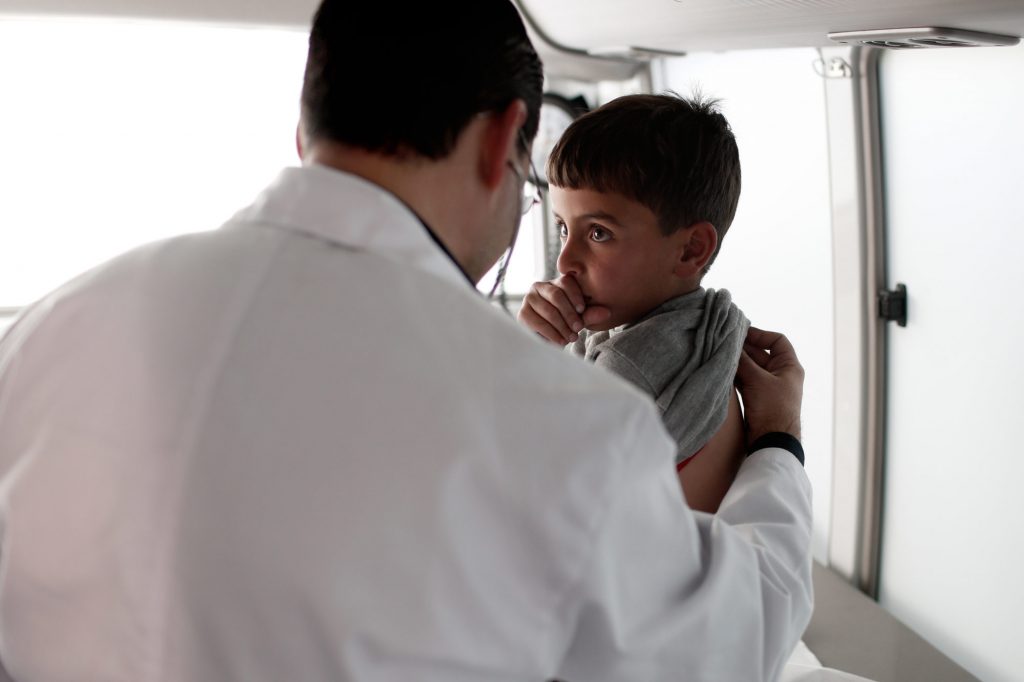
Health Services Support
Improving Local Health Services
Efficient, well-organized and well-supported health services can be lifesaving and life-changing. About 4.8 million children under 5 and nearly 300,000 pregnant women and new mothers die each year from causes that could be prevented by access to well-equipped and well-trained healthcare professionals.
International Medical Corps helps local health authorities provide primary and secondary healthcare services, including strengthening referral services from rural communities and clinics to large regional and national-level hospitals. We work hand-in-hand with national governments and local community leaders to ensure that basic healthcare is available and affordable for all people—whether they are residents of remote villages or large urban centers, and whether they are internally displaced people, asylum seekers, migrants or refugees.
Training and education are central to our support of health services. We train and mentor health-service providers, managers and community representatives, enabling them to better deliver, manage and monitor their local health services.
We also help rehabilitate health facilities and supply them with essential drugs and medical supplies. Where necessary, we recruit trained medical professionals to fill gaps in the health service system. And International Medical Corps works with local health authorities to advocate for the benefits of improving health services.



Areas of Focus
Overview
A strong health system delivers quality services to all people—whenever and wherever they need them. The exact structure and function of health systems vary from country to country; but all of these systems require well-maintained facilities, adequate medical supplies and efficient logistics to deliver quality healthcare. They also require a well-trained and adequately compensated workforce, reliable information on which to base decisions and policies, and a robust financing mechanism.
Key Stats



Overview
Health resilience is the ability of a community to use its assets to strengthen public health and healthcare systems, as well as improve the community’s physical, behavioral and social health to withstand, adapt to and recover from adversity.
Key Stats


Overview
Reliable data on the health status of individuals and communities—as well as on the performance of service delivery—are essential for planning, operating, monitoring and evaluating health programs in every country. Accurate data are needed for the surveillance of individual health, health facility performance, population health and community health.
Key Stats



A Trusted Ambulance Service Saves Lives in Mali
Our ambulance service in Mali is making sure that people in urgent need of medical assistance can travel safely and quickly to the hospital.
READ MORE